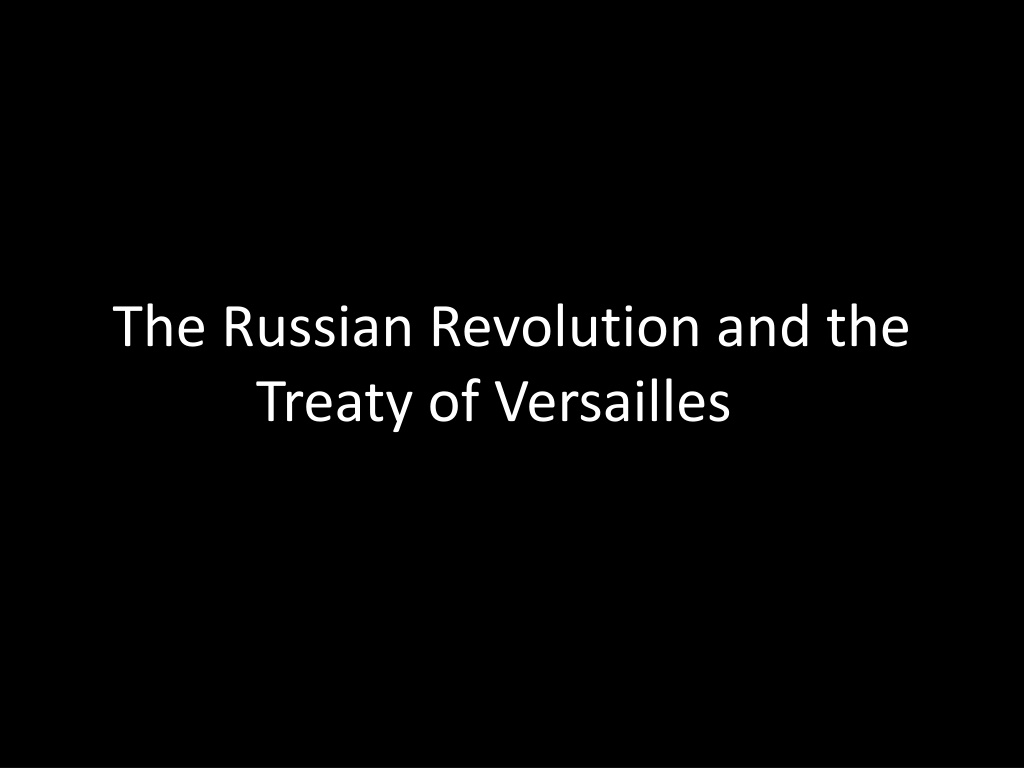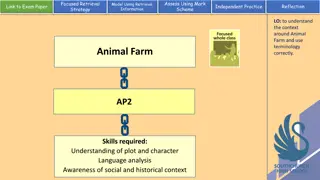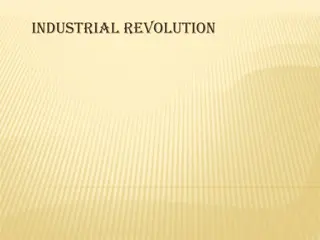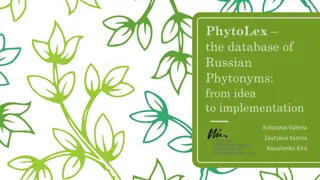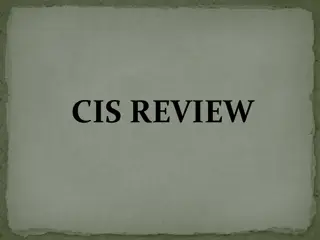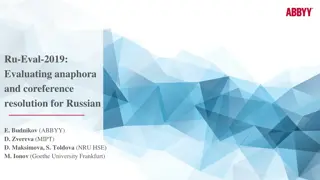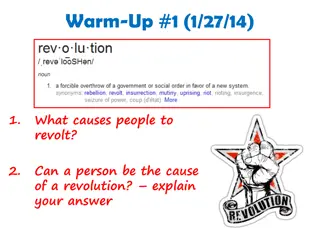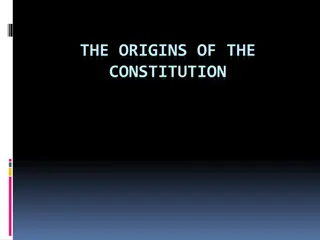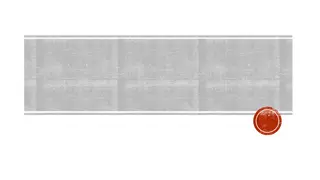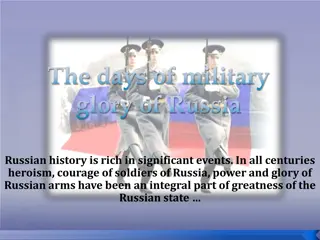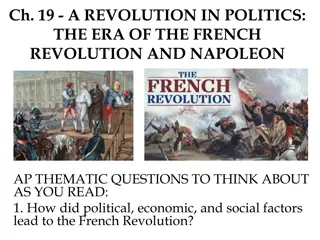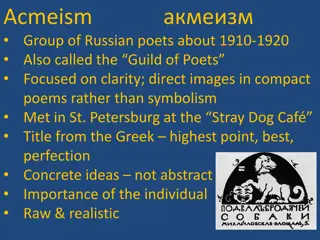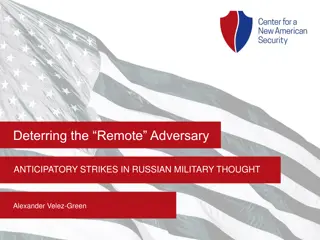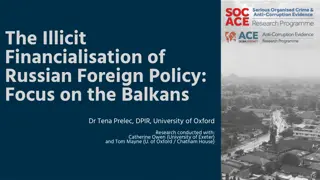The Russian Revolution: A Historical Overview
The Russian Revolution of 1917 was a pivotal moment in world history, marked by a series of events including the March and October Revolutions, the rise of the Bolsheviks led by Lenin, and the subsequent Russian Civil War between the Whites and the Reds. The revolution saw the overthrow of the Tsarist regime, the establishment of a provisional government, and ultimately the Bolshevik ascension to power, leading to the formation of the Soviet Union.
Download Presentation

Please find below an Image/Link to download the presentation.
The content on the website is provided AS IS for your information and personal use only. It may not be sold, licensed, or shared on other websites without obtaining consent from the author. Download presentation by click this link. If you encounter any issues during the download, it is possible that the publisher has removed the file from their server.
E N D
Presentation Transcript
The Russian Revolution and the Treaty of Versailles
Europe 1917 Entering into third full year of World War Death tolls constantly rising Drafts have been issued in all European countries by this point The Germans begin pushing the Russians back east
Russia in 1917 Technologically behind the rest of Europe Tsar Nicholas II Increasingly unpopular as war goes on Population mostly peasants 80 percent in Russia Compared to 40 percent in Germany War is going badly No working class=No industry=No guns
Alternative options Mensheviks Need tsar gone Revolution will create Bourgeoisie who will create industry Once industry is created history will progress as Marx intended Marxist Revolution Theoretical End of private property, religion, and class Social and economic equality Government owns the means of production Bolsheviks Need Revolution Industrialize from above Force peasants to become workers Skip Bourgeoisie phase
The March Revolution Tsar abdicates March 1917 He leaves in charge a provisional government Mensheviks join Bolsheviks don t Provisional government is recognized by west Chooses to stay in the war Unpopular decision
The October Revolution Actually occurred in November according to west Russia s calendar is different at this time Vladimir Lenin-leader of Bolsheviks Bolsheviks attempt to win people to their side Slogan Peace, bread, and land Bolsheviks rise up and claim a mandate from the people Actually had no popular support so really just a coup
The Russian Civil War Whites verses Reds Whites= tsar supporters, provisional government supporters, and western troops Reds=Bolsheviks Red Army created by Trotsky under the command of Lenin Bolsheviks win Begin Terror Secret Police called Cheka
What does this mean Russia pulls out of the war Germany begins fighting one-front war against Britain, France, and the USA The Civil War in Russia kills equal to or more than all the Russians killed in World War One The Bolshevik model for a Marxist Revolution will continue to play out over the next century
End of WWI Armistice November 11, 1918
End of WWI Troops never went into Germany Peace came as a surprise
14 Points Wilson wrote in January 1918 Germany sued for peace on basis of document
14 Points No secret treaties Freedom of the Seas Reduction in military for all Self-Determination League of Nations No reparations
War Aims- France Georges Clemenceau Lived through Franco- Prussian war Weaken Germany Militarily Economically Territorially Secure enforcement of Treaty by all
War Aims- Britain David Lloyd George Have Germany pay for the war Prosecute the Kaiser Maintain Peace Gain German colonies Maintain British superiority on the seas
Council of Four France Britain USA Italy Wanted territory promised in Treaty of London
Who Else? Japan Fifth power Alliance with Britain Britain Commonwealth Countries Who wasn t there? Who was there but not listened to?
Other Countries and Peace Terms States made from the old Austro-Hungarian empire or Ottoman Empire Treated well by Allies Harsh settlements were not imposed Japan Middle East Sykes Picot Agreement 1916 Mandate System
Germany Not present at Paris until April No negotiations Two choices Sign the treaty Invasion
Treaty Stipulations German military reduced 100,000 men and officers No air force, submarines, or tanks Compensate Allies for war Demilitarize the Rhineland Territorially reduced
Hall of Mirrors Treaty signed on June 28, 1919
After the Treaty America doesn t join the League of Nations Countries were separated into victors and vanquished Some liked the treaty, some felt it needed to be changed, and some felt slighted
